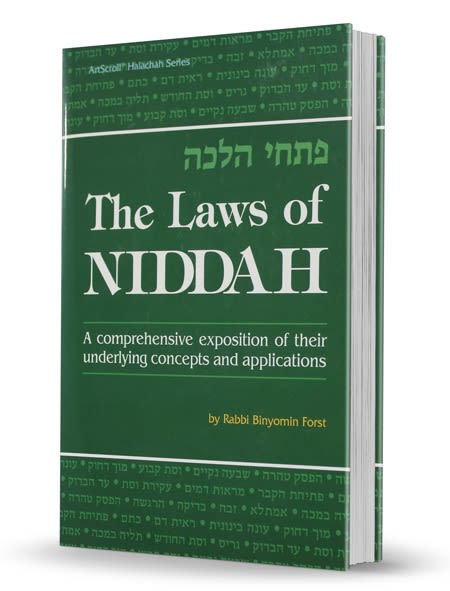
Va’etchanan: Our Desires vs. Torah Demands
When personal desires and religious expectations clash, a type of cognitive dissonance might develop; what do we do about it?

Parshat Va’etchanan
There is a popular term in modern psychology called cognitive dissonance. The concept, although relatively well known, is as follows. People often have internal conflicts between different personal beliefs, values, or ideas. If the tension becomes too great the person can suffer a number of negative consequences including anxiety, anger, or guilt. There are different ways how to alleviate the tension, some more and some less effective, which often reflect the individual’s resilience and ability to adapt.
There is a parallel that I would like to call religious cognitive dissonance. When a person with spiritual and religious goals experiences a tension between personal expectations and the expectations of religion, a type of cognitive dissonance can develop.
For example I feel I can’t live without a cheeseburger. Lo and behold, the Torah doesn’t want me eating cheeseburgers. Enter religious cognitive dissonance. I’m going to want to relieve the tension one way or another. Hopefully I’ll be able to relieve the tension by sacrificing my stomach’s needs for my soul’s needs. On the other hand my cheeseburger “habit” may get the best of me. This dissonance is a reality that both newcomers to Judaism and seasoned veterans have to contend with.
The case above is a little simplistic but there are examples which are more realistic and relevant. In this week’s Parsha, we are given the command to love Hashem. This obligation is discussed by many commentators. How can the Torah have expectations of my emotional world? Either I do or don’t love Hashem. Also, assuming I want to aspire to this love, how does the Torah picture this love?

To answer the second question first let us turn to the words of Maimonides who describes what love of Hashem is supposed to look like. “The person should love Hashem with a tremendous and overwhelming love until his soul is completely connected to the Creator and is totally preoccupied with his yearning for closeness. This yearning will reach the point that the person is literally love-sick to be close to Hashem.”
Very inspiring words. But it sounds like this was written for a select handful of the most pious. Most of us may feel that such lofty spiritual heights are beyond our abilities. How am I expected to feel this transcendent experience when I’m stuck in traffic, standing on a long line in the bank, or trying to keep my cool with the kids or my spouse? In short, we may feel cognitive dissonance which can lead us to selling ourselves short of our ability to truly love Hashem.
How can we deal with and overcome this tension?
The first part of the answer is based on the great Chassidic master, the Sefas Emes of Gur. He says that, in general, if the Torah commands us to do something then the very fact that we are commanded reflects the inherent potential to do so. The Torah doesn’t command us to fly because it is not within our abilities, actual or potential. The very fact that we are commanded to love Hashem means that this love is found within us. This concept is not just theoretical. A dramatic example of love which lay dormant but found expression in tens of thousands of Jews happened during the Holocaust. There are eye witness reports, both Jewish and non-Jewish, that day after day Jews entered the gas chambers of Auschwitz with “Shema Yisrael” on their lips. Where did this almost inconceivable expression of dedicating one’s life to Hashem come from? According to the Sefas Emes, we can partially understand these accounts by his explanation that this love fully present even if, at times, it is hidden. Their superhuman acts of self-sacrifice as Jews can teach us worlds about what we have hidden within our souls. Knowledge of this potential is the first step towards developing love of Hashem.
The second step towards reaching love of the Creator is based on the concept that love, or any other emotion for that matter, can be developed step by step. We quote from the words of Maimonides that proceed his comments mentioned above. “At the time a person thinks about Hashem’s incredible creations and sees the endless wisdom found in them, he immediately loves and praises and desires to know Hashem.”
By appreciating and delving into the miracles that surround us we can begin slowly but surely to develop the love within us.
Similarly, immediately after the verse about the Torah’s command to love Hashem is the verse that informs us of the requirement to study Torah. On this juxtaposition the Sages comment: “How can one come to love Hashem? By studying the words of His Torah.” When a person sees the infinite profundity, depth, and beauty of the Torah, he is drawn to its Divine Author. Once again, the way towards loving Hashem is to first study His words and that will bring us, one insight at a time, to love of the Creator.
In short, the Torah doesn’t command us to automatically love Hashem as much as we are required to make the effort to investigate and appreciate the world and the Torah as means to bring us closer to the goal of loving the Creator. Hashem’s expectations of His people are not to become angels or over-night tzadikim (righteous people) but to slowly develop our relationship with Him. Ultimately love is about the relationship. Starting with the knowledge that love for Him is planted within us and then working on developing that connection, we can and hopefully will develop a deep and everlasting love of Hashem.
Often cognitive dissonance can be debilitating. But in our case the very tension between our concept of our limited abilities and the Torah’s picture of the greatness that lies within us can catapult us to greater heights. If we can try not to sell ourselves short and let go of a false picture of personal limitations and accept the Torah’s understanding of what truly lies within us, we can grow to levels of love and yearning of closeness to Hashem that we never imagined possible. May Hashem help us realize this dream.












Tell us what you think!
Thank you for your comment!
It will be published after approval by the Editor.